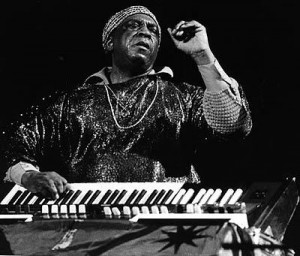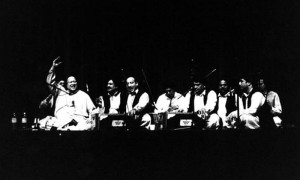This is a podcast that was made to show the world how Sun Ra has influenced music, culture, and society. This is just the tip of the iceberg, there is so much more information to be found on Sun Ra and his incredible life.
http://afrofuturism.net/
http://www.zulunation.com/
http://dangerousminds.net/comments/sun_ra_on_detroit_tv_1981 Click this link to see an interview with Sun Ra in 1981
Sun Ra’s first song on the soundtrack to his movie, a symbol of Afrofuturism.
This song represents uses of dissonance.
Sun Ra Live
Barthes, Roland, and Stephen Heath. Image, Music, Text. New York: Hill and Wang, 1977.
Digable Planets, What Cool Breezes Do, 1993, Capitol Records
Eberhardt, Maeve, and Kara Freeman. “‘First Things First, I’m the Realest’: Linguistic Appropriation, White Privilege, and the Hip-hop Persona of Iggy Azalea.” Journal of Sociolinguistics J Sociolinguistics: 303-27.
Kreiss, Daniel. “Appropriating the Master’s Tools: Sun Ra, The Black Panthers, and the Black Consciousness, 1952-1973.” Black Music Research Journal 28.1 (2008): 57-81
Madvillain, Shadows of Tomorrow, Madlib, MF Doom, 2004, Stones Throw Records
Parliament, P-Funk (Wants to Get Funked Up), George Clinton, 1975, Casablanca Record
Szwed, John F. Space Is the Place: The Lives and times of Sun Ra. New York: Pantheon Books, 1997. 167-223
Sun Ra, Images, 1974, ESP-Disk
Sun Ra, Sun Ra and his Band from Outer Space, 1970, ESP-Disk


